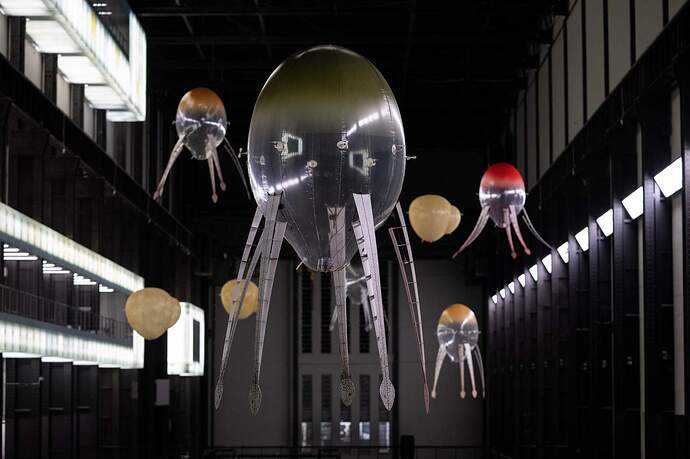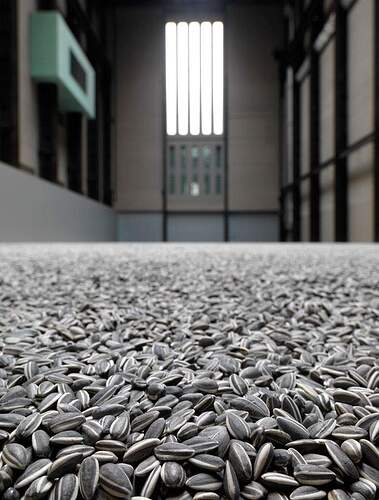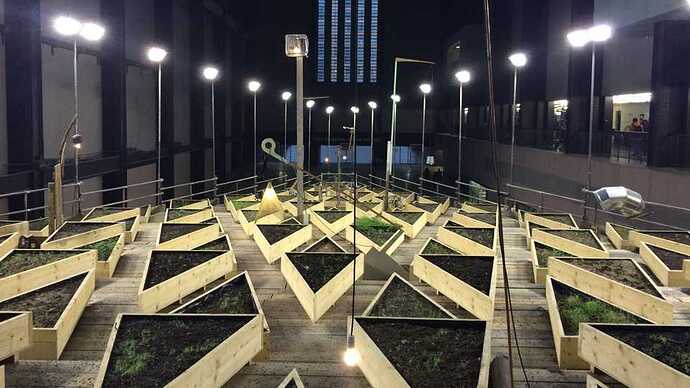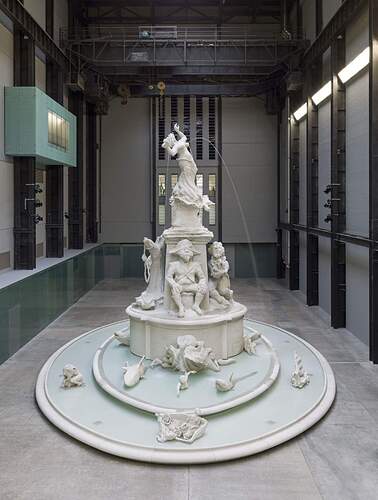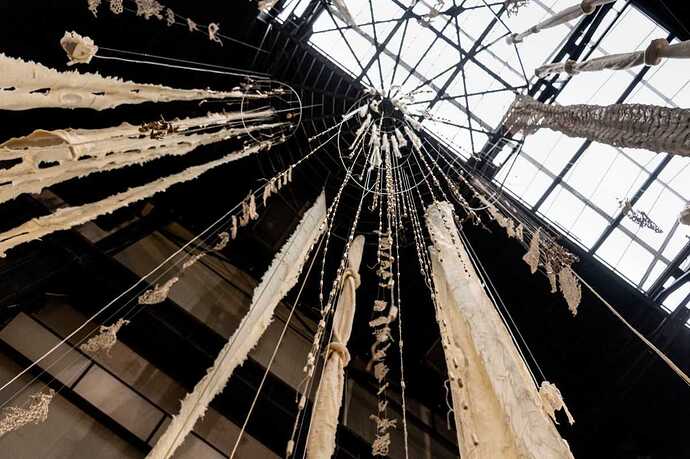in 2021, the Turbine Hall was filled with these fucking things:
Is this how aliens look like
back in 2010, the turbine hall was filled with millions of porcelain sculptures of sunflower seeds, made to scale
you literally will never predict what the fuck the vibe of this room is going to be. it’s one of my favorite locations in the world you go there and it feels like your soul is being dragged around behind a truck being taken somewhere new and very confusing that you’ve never been to before
Orthopedic massage?
2015-16?
the turbine hall contained this weird recycled mass of wood and compost that, again, i really do like as art
from 2019 to 2021, there was a massive pastiche of a 19th century sculpture depicting the slave trade made entirely out of recycled materials
all british sculpture is either this or monuments to slavers there is very little in-between. we have bad monuments and interesting but slightly frightening sculptures
i suppose that’s just the nature of art, though: it’s hard to find an in-between between the monumental, the propogandistic, art which makes you feel good about who you’re supposed to be, and art that is interested in, y’know, art.
i have a fascination with works of art that utilise scale and being enigmatic to sort of force you to ask questions of the space in which that art is situated, though, which is perhaps why I have such affinity for Gormley’s sculptures, and so many of the Turbine Hall’s installations.
sculpture, as an artform, is so intimately tied to architecture, and the histories of the lands on which the sculptures are placed, and genuinely, the scale and bizarre nature of so many of these make me see the land and its’ people with fresh eyes.
It s nice you have art you like!
but of course, all art is on some level interested in the room or natural vista in which it is situated. a book simply has less control over where it’s read, that’s all
then again, does a sculpture have that level of control over its’ sense of location? seeing all of these artworks that I’ve been talking about hasn’t made you question the Turbine Hall, or Crosby Beach, because you’re seeing it on your phone, or at your desk on a laptop screen. art has so little control over its’ sense of space, and yet we strive anyway to create art that causes our sense of the world around it to change
and the opposite is true; can you find control over that sense of space through works of art you generally can’t find? could you, for example, install a book inside of a room and have the only copy of that book be inside that room, because part of the message of that book is the room in which you read it?
but that book would be pirated: would that, itself, become part of the message? the experience that is art is almost all-consuming; every work of art has elements that the artist has less control over, and that is the space in which you first experience it
we value many forms of art, such as reading books, for letting us be absorbed into a world other than our own, but there’s always some part of us that’s still in the world when we’re reading it. I sleep surrounded by books, and for each one I can remember reading some passage in some location, the book sitting against me in some way, the light of the room when I read its’ most pivotal moments for the first time. for me, the essential memory of, for example, Terry Pratchett’s Lords and Lades is viewing a certain passage for the first time in a secluded restaurant in Rome.
that place, that Pratchett died before he could ever experience, is in some small way a part of my experience of his art. I don’t think this is a problem for artists to deal with, but rather an opportunity: how do we consider the space around our art, how it might add to it, when we have so little control over it? do we write books considering how it would feel to read one for the first time in your bedroom, in the airport, on a plane? I think, honestly, that on some level you do have to do that.
I wonder if the best way to proofread a book, then, is to proofread some of it on an aeroplane, some of it in your bedroom, some of it in someone else’s, some of it in a restraunt, and so on and so forth? Because that is how it will be read. An interesting question to come back to once I’ve written a few of my own.
ihaveihaveihave insomnia

